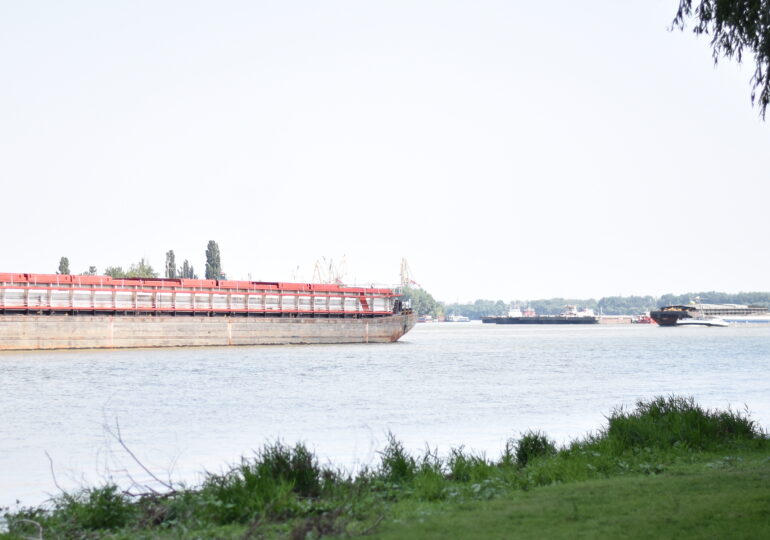A new drone attack by Russia at the border between Romania and Ukraine highlights a vulnerability in the country’s defense. The military cannot shoot down aerial objects entering the national airspace due to inadequate legislation.
This week, Russia launched a new wave of nighttime drone attacks at the Ukraine-Romania border, and Romanian authorities responded in a similar manner by issuing Ro-Alert messages, sending up aircraft to monitor the aerial situation, and initiating a ground search operation that led to the discovery of remnants of a Russian drone.
MApN announced in a statement the intensification of monitoring and surveillance measures of the national airspace with the forces and means within the Air Police Combat Service.
However, besides monitoring and surveillance, the defense forces cannot do much to prevent such incidents, as the current legislation is not adapted for actions against drifting drones entering Romania's airspace, even when loaded with explosives and posing a danger to the population, stated General (r) Virgil Bălăceanu, former Romanian representative at NATO Headquarters in Brussels, to Adevărul.
The current procedures that the military must follow in the case of drones entering the national airspace do not allow for the rapid destruction of targets.
"For this to be possible, changes are needed to the Defense Law, the Ministry's Organization and Functioning Law, the Arms and Ammunition Regime Law, and especially Law 257/2001, which establishes how unauthorized aircraft in Romania's airspace are dealt with during air police missions," explained Virgil Bălăceanu.
"The law's provisions, in Article 8, are inoperative when it comes to drifting drones, and we must also consider the possibility of rockets accidentally reaching Romanian territory and needing to be destroyed," added Bălăceanu.
How can the air forces intervene
The legislation stipulates that the armed forces will successively take the following measures in the case of unauthorized aircraft entering Romania's airspace:
- ground positioning of the aircraft, radio contact, and identification;
- transmission of information and instructions from the ground to the pilot or crew of the aircraft for authorized use of Romania's airspace;
- interception of the aircraft continuing to use Romania's airspace without authorization;
- issuing warning fire by interceptor aircraft;
- engaging in destruction fire by interceptor aircraft or ground air defense means.
These procedures require a lengthy response time, necessitating legislative changes to allow for a swift reaction, emphasized Bălăceanu.
"We must consider drifting drones as loitering guided ammunition, and those identifying them, whether through anti-aircraft defense means on the ground or aircraft performing air police missions, should be able to open fire, taking into account the specific area to ensure the destruction of the drifting drone in flight without endangering the population in that area with falling debris," he explained.
"The main issue is that current legislation does not permit such actions, as firing is only allowed in military unit areas for their protection and defense, and shooting is only permitted in the army's training grounds," elaborated the retired general.
Four laws need to be changed
The issue of legislative gaps hindering effective air defense of the country was raised by the military leadership earlier this year.
The Chief of the Army Staff, General Gheorghiţă Vlad, stated in February that the military lacks the necessary legislation to shoot down attacking drones entering Romania's airspace, requiring changes to four laws.
"Currently, the Romanian Army cannot conduct combat operations in peacetime. An exceptional state, a state of siege, or a state of war must be declared. The Romanian Army cannot operate weapon systems outside military objectives or the training grounds we currently have," he told Europa Liberă.
The four laws referred to by the army chief are:
- National Defense Law,
- Organization and Functioning Law of the Ministry of National Defense,
- Arms and Ammunition Regime Law
- Law 257/2021 regarding the action against aircraft using Romania's airspace without authorization.
"In this law (the last one -ed.), for example, because the drone is classified as an unmanned aircraft, (the military -ed.) must adhere to the same rules if it is engaged, meaning: the air police service must be activated, the aircraft must signal the violation of national airspace. There are four to five stages (…)," explained Gheorghiţă Vlad.
Another obstacle in drone interception: means shortage
The Chief of Defense Staff explained that last year, the military faced another impediment in intercepting foreign drones.
"There was a shortage of means. Only now has a contract been signed with a supplier from South Korea," General Gheorghiţă Vlad asserted.
When asked, "So, you didn't have projectiles?", he replied, "We didn't have combat systems. The projectile is part of the engagement system."

